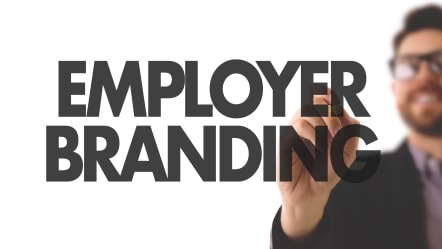Ways to Boost IT Employer Branding for Startups

Teams often have difficulty focusing on the company's vision while also juggling a number of different jobs and working long hours. Developing a employer branding and recruitment strategy is essential to a startup's success. It is important for startups to understand employer branding, and this guide will discuss affordable and easy strategies that can be implemented.
Startups need tofocus on employer branding to be successful.
23% of startups fail due to not having the right team. A strong employer brand can help you attract and hire the best candidates, which greatly improves your business outcomes.
Acquiring top talent is a difficult task.
It is difficult to stand out from the major tech companies vying for the attention of top tech candidates with their flashy brand name and enticing employee value proposition (EVP).
Research how your employer brand and EVP compare to companies that are of a similar size or slightly larger than your company.
Successful teams create successful companies.
If you're in the SMB or growth stage, every individual contributor has a major impact on the company's success. Build a stellar company culture early on, and develop an employer branding strategy that attracts job seekers who will build upon your current culture. If you're unsure of your company culture, here are 13 signs to look out for. Need help? Here are four easy steps to improve company culture.
Recruiting is a team effort.
Startups typically have a very small HR and recruitment team — if one at all. Everyone wears different hats — one of the elements that make startups an exciting and fun place to work. Your sales, finance, and tech support teams can all support your employer branding efforts.
It is essential that you create guidelines for what you need from your employees and how they can help in order to get the most out of them.
Create an employee referral program that rewards employees financially for referring great candidates- this will encourage participation in employer branding initiatives.
Employee engagement is key to a strong brand.
Early-stage startup candidates are often motivated by the possibility of growth and innovation. However, as the company grows and hires more employees, the culture will change. Therefore, it is essential to have the support of your team when making new hires.
Plan company outings, happy hours and other employee engagement activities that encourage coworkers to connect with each other outside of work.
The importance of employer branding for startups.
It is important for startups to have an employer branding strategy. Let's explore how to create a clear strategy. Don't fret, we'll cover this more in depth later on with a few tips, but for now, here's how to start building your employer brand from the ground up.
Define a mission and values that are clear.
In order to build an employer brand, you first need to understand what your company represents. This will guide what you need to communicate to job seekers and other stakeholders.
A mission statement will unite your team and attract candidates who believe in your purpose.
Your employer brand will be guided by your mission and core values, so it is important to establish them early. It is important to get feedback from your team in order to ensure that you have majority agreement on how each term is defined. Once you have finalized your definitions, share them with your entire team so that they are aware of your efforts and can provide support as needed.
Develop a strong company culture
Culture is more difficult to define than mission and values because there are many moving parts that make up culture. It is advisable for companies to communicate the nuances of their culture in their branding efforts, as 46% of candidates state that a company’s culture is a significant factor in their decision to apply for a role.
The culture of startups is different from that of larger organizations in that there are fewer barriers between the C-suite and individual contributors. Everyone has a role to play in creating the company culture. Many job seekers are attracted to startups because of the "work hard, play hard" mentality.
With more people joining the team and dynamics changing, people can feel uncertain about the cultural changes taking place. While it may be natural for some to feel this way, it is important to make sure that any changes made are intentional, and that you are hiring individuals who will uphold your company's core values and help your team achieve its goals.
By sharing your company culture through employer branding, you will be more likely to find candidates that will strengthen your culture rather than just being a good fit.
Develop candidate personas
Although you may not be hiring niche specialists at this time, you need to ensure that you are hiring the right individuals who are competent and will thrive in their position. Furthermore, it is advantageous to practice developing candidate personas when you are only hiring for a few roles instead of trying to figure it out when your team is in a period of rapid growth.
It's time to focus on your sourcing strategy.
The marketing team is a valuable resource for informing your recruitment marketing strategy. They understand your industry, business, and the type of people you are looking to hire, so they can help you attract the best candidates.
Make sure you're using the right social media platforms for your candidate personas by asking your marketing team which ones they use to target different buyer personas. This will also give you some great ideas for creating social media content.
Promote your vision to the world!
Being part of the next big thing is something that many people want, but when a company is in its early stages, there can be an issue with brand awareness. It is the responsibility of the company to communicate its values and what it does to those who might be interested in open roles.
Share your company's short and long-term goals in your employer branding materials to get candidates excited about joining the company.
It is vital that you remain transparent.
A startup can be an intimidating prospect to join - from the lack of job security to the possibility of working long hours or taking on multiple roles.
Be clear and concise in your employer branding materials and job descriptions as to what you need and expect from future employees. This way, new hires will not experience culture shock due to miscommunication during recruitment, and you will be able to keep the great candidates you worked so hard to attract.
Celebrate your culture and achievements by sharing pictures of team outings, the office space and special moments.
11 easy and affordable employer branding ideas for startups
You don't need a lot of resources to create an excellent employer brand and be different from the competition. Here are some ideas to get you started without spending a lot of money.
1. CREATE FUN AND SIMPLE RECRUITMENT VIDEOS
While it may be worth the investment to hire professional videographers in order to create an engaging recruitment video that can be repurposed across multiple platforms, you can also get started by using an iPhone.
Work with your team to coordinate employee interviews that will speak to your employer brand and their individual experiences.
2. WRITE AN EMPLOYER BRANDING BLOG
If your website includes a blog, develop a content plan for the employer brand content you want to create, and set up a publication schedule with assigned authors.
If your website does not have blog functionality, you can publish content on other platforms that are more conducive to longer posts, such as Medium. You can also guest write for other well-known HR blogs to share your employer brand materials.
We are constantly striving to create a better work environment for our employees. If you have any thoughts on how we can improve, please let us know.
3. CREATE A UNIQUE CAREER PAGE OR HOST IT ON ANOTHER PLATFORM
Your career page is your opportunity to show off your company culture and attract top talent. Include information beyond job descriptions, like your company’s application and recruitment process, employee resource groups, employee spotlights, recruitment videos, diversity statistics and programming, upcoming recruitment events and images of your office and employees.
Don't have time to create a career page? No problem! There are plenty of other ways to get the same information to job seekers.
HR-specific platforms help you share important information about your company culture and employee benefits. For example, Built In company profiles have the functionality to build an employer branding profile that can be embedded into your company’s website with minimal developer assistance.
4. IMPLEMENT A ROBUST SOCIAL MEDIA STRATEGY
Not only is social media an cost-effective strategy, but it's also one of the most effective ways to reach millennials.
See if anyone on your team is knowledgeable about social media and if they would be able to help you write social media content.
Look for trending topics and create memes that will resonate with your target candidates. You can encourage your team to take and submit photos of their lives in the office for great candid content.
Organic content can be just as impactful as paid ads--and sometimes even more so. It's definitely worth putting in the effort, especially if you don't have extra cash to spend on ads.
5. BUILD A TALENT COMMUNITY
A talent community is a group of candidates who have expressed interest in your company, and may have even applied or gone through the recruitment process, but didn't end up working for you. Keep your talent community engaged by regularly connecting with people who have interacted with your brand as a job seeker.
If you don't have an ATS or an established talent community, create a list of people who have applied to your roles, attended your recruitment events, engaged with you on social platforms, or are former employees.
The content you have created for employer branding blogs, recruitment videos, social media content, newsletters, and job descriptions can be used to contact your talent community about available positions.
6. SEND EMPLOYER BRANDING NEWSLETTERS
Create a newsletter that includes information about open roles, recruitment events and any other information that would be beneficial to share with candidates. Depending on the frequency of your hiring needs, you can send a newsletter out weekly, bi-weekly, monthly or even quarterly.
You want to remain top of mind for interested job seekers by keeping them updated on your open roles and company happenings, without overdoing it and causing them to unsubscribe from your newsletters.
7. TEST OUT TEXT RECRUITING
Recruiting through text is a newer way for companies to promote their employer brand with potential candidates. Segmenting job seekers based on their interests and past interactions can help you determine which roles they may be interested in and how serious they are about pursuing a new job.
8. HOST LOW-KEY RECRUITMENT EVENTS
While you don't need to go all out for a recruitment event to be successful, hosting a casual hiring mixer can help take the edge off for candidates. Rent out a local favorite restaurant or bar, and if you can afford it, offer free drinks or snacks.
Candidates should arrive in business casual attire and be prepared with any material they might need. Set up activities that allow for job seekers and employees to get to know one another in a casual setting. Candidates will appreciate your candor, and you'll get to see a more natural side of job seekers.
9. ATTEND INDUSTRY EVENTS
By attending events that industry leaders are bound to be at, you will be able to make close connections with top professionals while also increasing brand awareness for your company.
10. CREATE A MEMORABLE CANDIDATE EXPERIENCE
Candidates who have negative experiences with your company are three times as likely to share those experiences online, tarnishing your employer brand.
You can improve your candidate experience by streamlining processes, maintaining close contact with applicants and simplifying your application process. Adding a personal touch to the experience will help candidates remember your company even if they don’t get or accept the job. It will establish a network of potential customers who are likely to write positive reviews and recommend others to your company.
11. ENCOURAGE YOUR TEAM TO GET INVOLVED
It is essential to include your whole team in your employer branding strategy. Instead of spending a lot of money on paid social media advertisements, encourage your employees to share content on their personal channels, but don’t make it mandatory. Create a contest to find the best copy for social media platforms.
Make sure you're regularly asking your employees questions about their experiences working for you, and then use that feedback to improve your business.
It is needless to say that there are plenty of affordable and easy options to improve your employer brand. While it may not have been a priority before, hopefully you now understand the importance of employer branding for startups. If you are looking for more resources to improve your strategy, check out other tips and tricks on employer branding.










